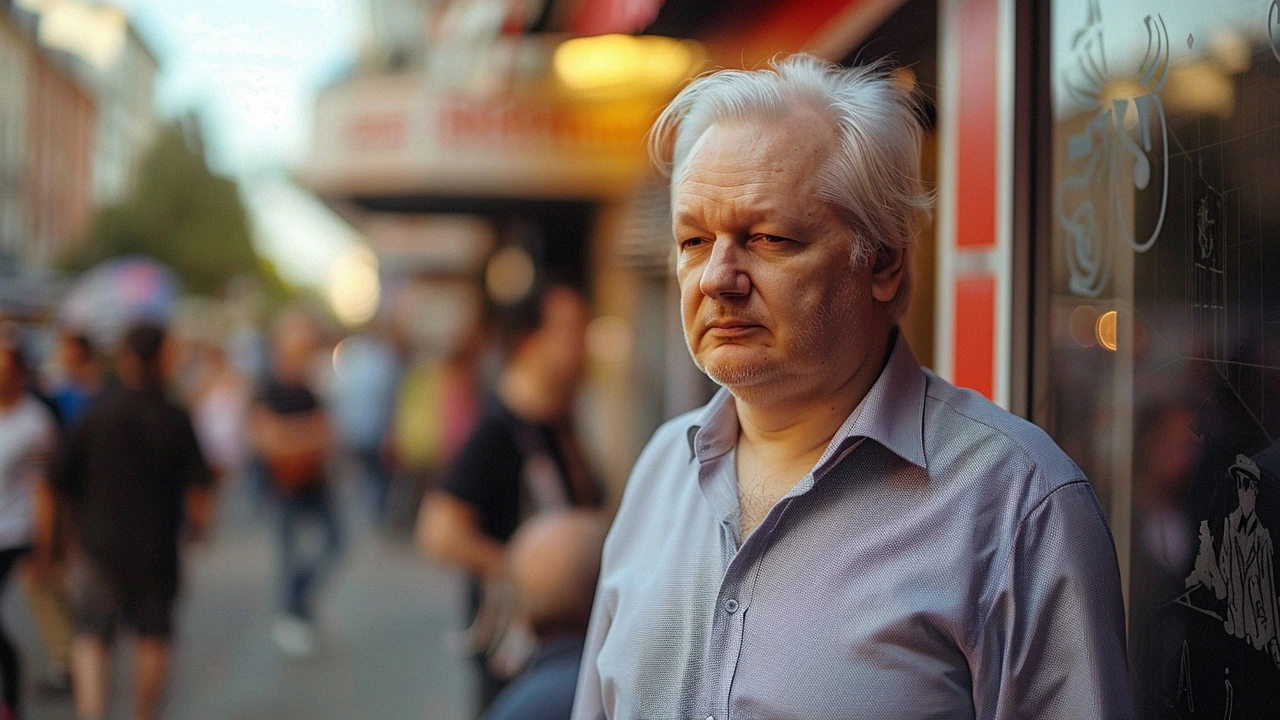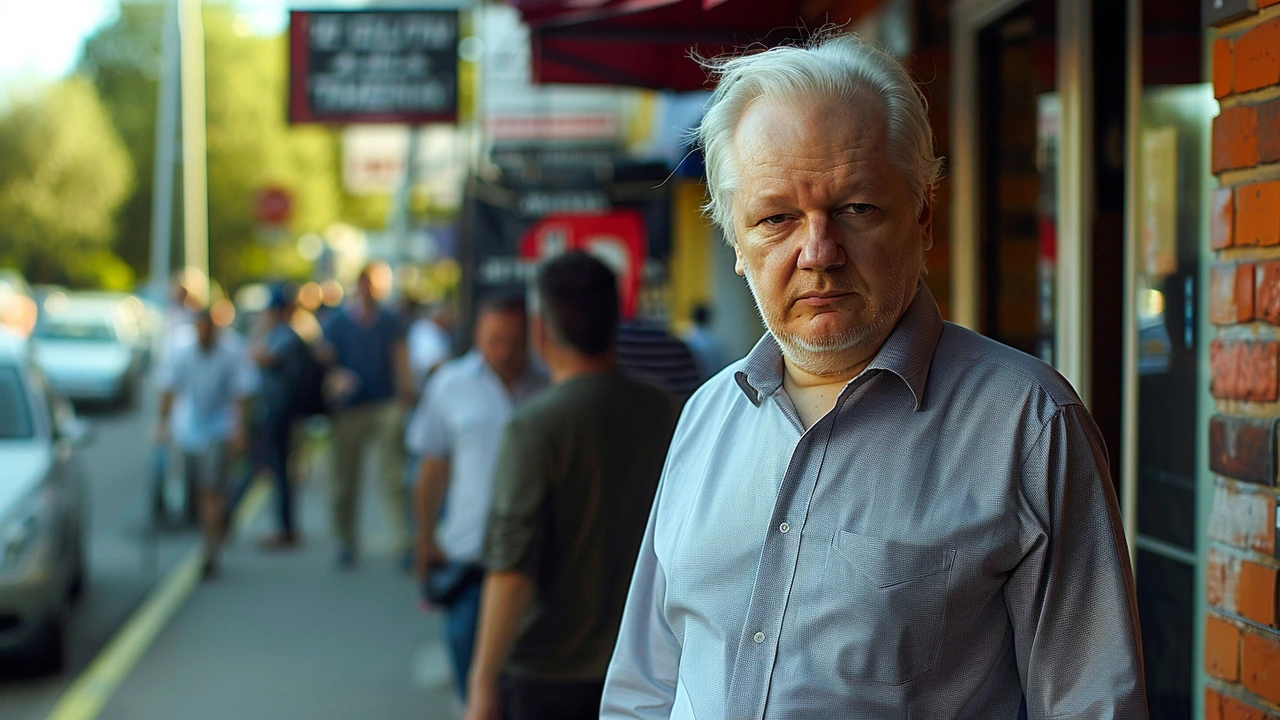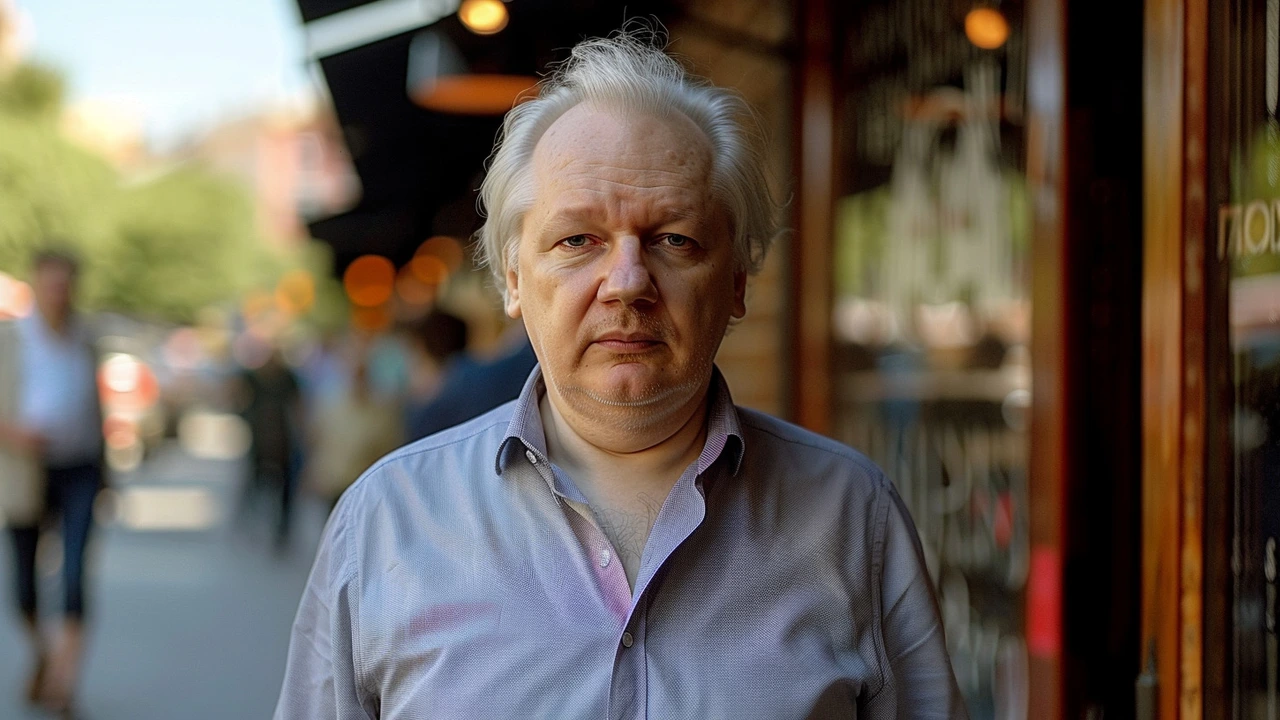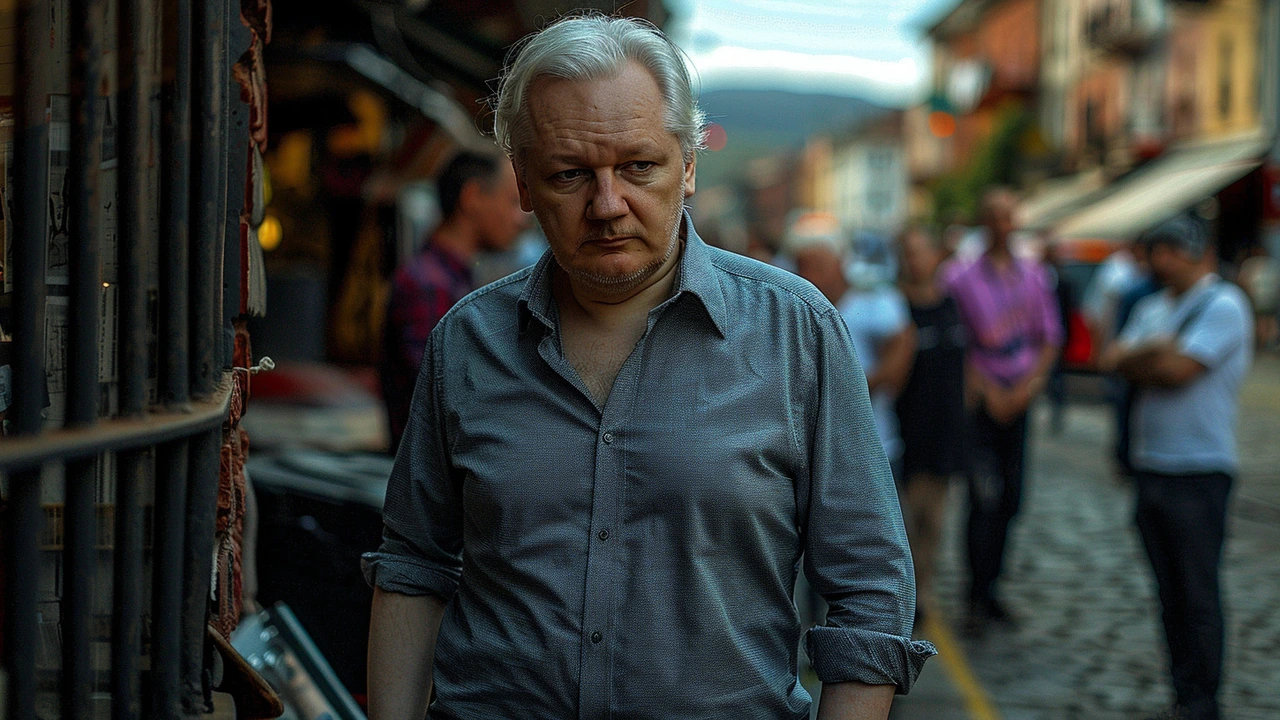WikiLeaks Founder Julian Assange Reaches Plea Deal with US Justice Department
Julian Assange, the trailed founder of WikiLeaks, is set to bring an end to his prolonged legal tangle with the US Justice Department by pleading guilty to a felony charge under the Espionage Act. This significant development is expected to take place in a federal court located in the Mariana Islands where he will be facing charges of conspiring to unlawfully obtain and disseminate classified national defense information.
The charges against Assange are part of a larger narrative involving the publication of hundreds of thousands of sensitive government documents. These documents were handed over by former U.S. Army intelligence analyst Chelsea Manning and subsequently published by Assange on the WikiLeaks website. The information ranged across categories marked 'top secret', 'secret', and 'confidential', raising alarms about the violation of laws designed to protect national security.

The Legal Saga and its Implications
Julian Assange's legal journey has been nothing short of tumultuous. His actions have not just sparked legal controversies but have also ignited a profound debate about the delicate balance between press freedom and national security. During his tenure at the Ecuadorian embassy in London, where he sought asylum for seven years, Assange continuously fought efforts for his extradition to face charges in the United States.
His confinement was followed by imprisonment in the United Kingdom, showcasing the lengths the legal system would go to bring him to justice. The decision for the court hearing to be held in the Mariana Islands, a territory considerably closer to Australia than the US mainland, underscores Assange's persistent resistance to a full extradition to America.

Context of the Plea Deal
The decision for Assange to plead guilty can be seen as a culmination of years of legal wrangling and a global campaign advocating for his release. This campaign has rallied support from a diverse array of grassroots organizers, press freedom advocates, legislators, and prominent leaders spanning various political landscapes. Even figures from the United Nations have weighed in, emphasizing the need to uphold press freedoms.
Assange's plea not only signifies a strategic legal maneuver but also addresses the growing concerns regarding his prolonged confinement and the implications it has on mental and physical well-being. While his actions with WikiLeaks were seen by many as a bold stride for transparency, the adverse effects on national security could not be ignored. The legal agreement seeks to achieve a delicate balance, potentially offering a form of resolution to both Assange and the governmental bodies keen on safeguarding sensitive information.

The Road Ahead: Life Post-Plea
Upon pleading guilty and receiving his sentence, Julian Assange is expected to be allowed to return to his homeland, Australia. This will be the first time he has traveled in over a decade, marking a monumental shift from his previously cloistered existence. His return is tinged with sentiment, representing both a personal relief and a historical moment reflective of his turbulent journey.
The timeline is set for Wednesday morning in Saipan, the capital of the Northern Mariana Islands, which aligns perfectly with Assange's reluctance to enter mainland US jurisdiction. Legal experts and those following Assange's case will be keenly observing this landmark hearing, as it will set a precedent for how whistleblowers and those handling classified information are treated in the digital age.
Global Reactions and Reflection
The global community's reaction to this development has been varied. Advocates for press freedom see this as a bittersweet moment, highlighting the triumph of concerted advocacy efforts but also reflecting on the enduring challenges faced by those who stand at the crossroads of disseminating sensitive information and safeguarding national interests.
As Julian Assange prepares to step into a new phase of life, the world watches closely, perhaps hoping that his journey, with all its twists and turns, offers lessons on the importance of transparency, accountability, and the rule of law in our times.
The Assange saga remains a critical chapter in the wider discourse on the responsibilities and limits of the media in the information age. How this case concludes will likely inform future policies and perspectives on whistleblowing, governmental transparency, and the inviolability of national security.
In conclusion, Julian Assange's case has unfolded as one of the most intricate and debated legal stories of our time. His imminent plea and the subsequent return to Australia represent a key resolution in this narrative, casting a lasting shadow on the relationship between the press, legal frameworks, and state security mechanisms. The world now holds its breath, waiting for the next chapter in this extraordinary saga.

Nancy Perez de Lezama
June 25, 2024 AT 22:26Proud to see this case finally moving forward, though we must stay mindful of protecting both press freedom and national security. It's a delicate dance, and the simple truth is that open dialogue helps keep democracy healthy. I hope the outcome sets a fair precedent for future journalists.
Matt Heitz
June 27, 2024 AT 03:00The indictment represents a necessary enforcement of the national security imperative, targeting unlawful acquisition and clandestine dissemination of classified intel. Such breaches constitute a direct affront to our sovereign defense architecture and must be met with decisive legal action. Anyone who willfully jeopardizes operational secrecy under the guise of public interest is betraying the very fabric of our nation.
Susan Mark
June 28, 2024 AT 07:33The Espionage Act has been applied in a handful of high‑profile cases, most notably against leakers who released raw data without editorial context. In practice, courts often weigh the harm caused against the public benefit of disclosure. This plea could signal a willingness to negotiate when the broader impact on national security is limited, which might influence future whistleblower negotiations.
Jason Jennings
June 29, 2024 AT 12:06Your glorification of endless war on information only cheapens real patriotism and ignores the nuance of free speech. It's a lazy take that pretends to protect but just fuels fear mongering.
Diego Vargas
June 30, 2024 AT 16:40Actually teh Espionage Act was passed back in 1917 and it’s not just about hacking, it covers any unauthorized shoot of defense info. Assange definitely didnt just publish stuff, he was part of a larger network that includeds several insiders. So it’s not as simple as a lone hero or villain, the whole ecosystem matters.
Alex Lee
July 1, 2024 AT 21:13Assange is a traitor who endangered countless lives with his reckless leaks.
Vida Yamini
July 3, 2024 AT 01:46The journey ahead for Assange, now that a plea has been secured, offers a rare chance for reflection on the complex interplay between transparency and security.
While many celebrate the prospect of his return home, it is essential to recognize that the underlying legal and ethical questions remain unresolved.
A key lesson from this saga is that the mechanisms designed to protect classified information must be balanced against the public's right to know about governmental actions.
In practice, this balance often hinges on the integrity and responsibility of the journalists and whistleblowers who handle sensitive data.
The Espionage Act, originally crafted in a very different technological era, now confronts a digital age where replication of documents can occur instantaneously.
As such, reforms that clarify the boundaries of lawful disclosure without criminalizing legitimate investigative reporting are overdue.
Moreover, support networks for individuals who face prolonged isolation, as Assange did, should be strengthened to mitigate the mental health toll that such cases exact.
International cooperation, especially between democratic allies, can play a pivotal role in establishing standards that respect both security and freedom of the press.
Policy makers should engage with legal scholars, technologists, and media ethicists to draft nuanced guidelines that are resilient to rapid information diffusion.
Educational programs that train journalists on handling classified material responsibly can further reduce the risk of inadvertent harm.
From a broader perspective, the public discourse surrounding this case illustrates the deep divisions that exist over what constitutes a legitimate leak versus a dangerous breach.
Bridging these divisions requires honest dialogue that acknowledges legitimate concerns on both sides without resorting to demonization.
In the meantime, Assange's personal story serves as a cautionary tale about the human cost of prolonged legal battles and the importance of humane treatment.
It also reminds us that the law is not static, and that societies must periodically reassess statutes that may no longer serve the public interest.
Ultimately, the hope is that this resolution paves the way for a more transparent yet secure information ecosystem.
By learning from past missteps, we can strive toward a future where accountability and protection coexist harmoniously.
James Lawyer
July 4, 2024 AT 06:20The legal settlement underscores that plea agreements can serve as pragmatic tools to resolve protracted litigation while preserving core judicial principles. It also illustrates how international diplomatic considerations, such as Assange's eventual repatriation, intersect with domestic statutory enforcement. Observers should monitor how this case influences future applications of the Espionage Act to journalistic activities.